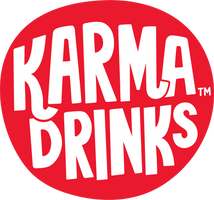
Becoming B-Corp: Is the world better off because your business is in it?
After completing the toughest test to earn our customers' trust, Karma Drinks is officially a Certified B Corporation.
We didn’t come up with the idea of making a soft drink from cola nut, but we do make one that brings prosperity to the people who discovered the eponymous ingredient of the world’s most famous pop.
The belief that a business like ours can be a force for good has always been our North star and we have a simple guiding philosophy: to make drinks that are good to drink, good for the planet, and good for everyone living here.
This is a tall order for something as inconsequential as a soft drink but it’s also our belief that anyone in business today is responsible for more than turning up to work to sell stuff and make money.
Given that one of the world's most prolific beverage brands sells around 1.9 billion soft drinks a day and is also the world's largest fossil fuel plastic polluter, our challenge has been to give our industry a good name.
Every day, everyone we work with makes this happen, sourcing sustainable ethical ingredients, and working directly with producers and manufacturers to create the most refreshing drinks we can, whilst having the most positive impact.
Claims that can’t be proven leave a bitter taste. Calling ourselves green, organic, ethical, or cuddling up to worthy causes isn’t enough. From the day we sold the first bottle of Karma Cola, we’ve encouraged our customers not to trust us.
Instead, we’ve asked them to trust the organisations that keep us honest.
We’ve invited the scrutiny of the Fairtrade Labelling Organisation, The Soil Association, BioGro and our own independent trust; The Karma Cola Foundation, with the same rigour we expect from our customers' taste buds, our shareholders, food safety authorities, banks, and the Inland Revenue Department.
Today we’re celebrating completing the toughest verification to earn our customers' trust. Karma Drinks is officially a Certified B Corporation.
We’ve undergone an independent assessment measuring our performance in five impact areas: Governance, Workers, Community, Environment, and Customers.
Our score is a measure of the hard work that brought us here. Most importantly, it’s a benchmark for how we will continue to improve.

Karma Drinks Overall B Impact Score
Based on the B Impact Assessment (BIA), Karma Drinks earned an overall score of 127.4. The median score for ordinary businesses who complete this assessment is currently 50.9 and the threshold for qualification is 80.

Why B Corp?
B Corp is a badge worn by companies who’ve met high social and environmental standards and have the ambition to improve this baked into their mission.
Some of the top-scoring B Corps are iconic businesses like Patagonia and Ben and Jerry’s whose commitment to social and environmental change is at the heart of their brands.
Certified B Corporations are verified by B Lab. A non-profit organisation that assesses companies based on how they create value for non-shareholding stakeholders, such as their employees, the local community, and the environment.
Once a firm crosses a certain performance threshold, it amends its company charter to incorporate the interests of all stakeholders into the fiduciary duties of directors and executives.
Allbirds, Ethique, Kiwibank and Stuff have joined a cohort of Kiwi founded businesses who’ve put their commitment to social and environmental change at the heart of their brands, using market forces as a force for good. B Corp Certification sets these companies apart because they:
Meet high standards of verified social and environmental performance, public transparency, and legal accountability, and aspire to use the power of markets to solve social and environmental problems.
What we’ve learned about becoming a B Corp
We’ve had a couple of attempts at B Corp Certification. The first began in our UK office and was scuppered when Covid came along, forcing us to make changes that meant we had to restart the assessment. We set aside the application to focus on more pressing issues, like the survival of our company.
Around the same time our new CEO, Ben Dando, took the helm to right the ship. For a while, the urgency to come up with a better plan to tackle the climate emergency, competing with the more immediate challenge of Covid was the zeitgeist manifest. But with the Covid crisis receding, we’ve been able to do the work required to understand how we can do better across all aspects of the company.
The attraction of the BIA was far more than a badge of merit. It takes a holistic view of a company’s business model, operations, culture and impact to understand the triple bottom line of economic, social and environmental accountability. We saw the application as a warrant of fitness.
Just over a year ago Ben and the team, encouraged by the first NZTE Business For Good programme, hit restart and dived into aligning our stakeholders and sorting through the hundreds of questions that B Corp Certification needs answering.
For a company like Karma Drinks, built on a commitment to give back more than we take, it was a reassuring and challenging journey.

What did we discover?
Understanding and ranking our performance across the B Corp framework has allowed us to assess our business against the five core areas of the BIA and stress test whether we are living up to our values.
|
Governance

B Lab believes the key to resilience is to weave your mission into your company’s cultural and legal DNA by integrating your values into job descriptions, performance reviews, and even corporate governing documents. It requires transparent, open, and honest insight into your company’s performance and how you can do better.
Our team had the most to say about the governance section of the audit. Ben observed that it’s critical to “ensure you are serious about the commitment. It requires a change of articles for directors to sign off, so make sure your board is on board.” Brace yourself for the mahi and don’t underestimate the time and resources needed. Ben emphasises: “put your best foot forward with a great team. Time is money, so ensure you can afford to complete the process accurately.”
From an operational perspective, the team found the process a “way of getting into the inner workings of Karma Drinks and more fully understanding the good we are already doing as a company”. Jessamy, who leads Karma’s UK and European business, saw “how Karma stacked up against the B Corp framework, and how many points some questions carried. e.g., 1% of revenue to good causes wasn't enough to qualify for the impact model, no matter what else you do as a business for people and the planet.”
The Karma Cola Foundation has always been at the centre of our promise of good karma; however, it doesn’t reflect the operation of the entire business, so we found the B Corp ranking in recognition of the work of the Foundation a challenge. When we include all the funds and resources, we allocate to improving our social and environmental impact, the amount is more than 1% of sales revenue earmarked for the Karma Cola Foundation and contributes to a score of 17.1 points.

There are usually 10 — 15 points available in the Governance impact area, depending on size and sector. Businesses in the top 5% average a score of 20.7 which is higher than typically available because they also pick up Impact Business Model points.
Workers

Everyone who joins the Karma team is attracted by the challenge to create and sell the world’s most delicious, ethical soft drinks and by the values that built the company: humanity, impact, and creativity.
This shines through in the passion our people have for their work. Their enthusiasm rubs off on new teammates and everyone else we encounter. The opportunity to take this even further was highlighted in the assessment.
The Workers' criteria look at how the company contributes to employees’ financial security, health, well-being, safety, career development, and engagement satisfaction.
Our most valuable assets walk in and out of our offices or connect with us over the internet every day. These people are our successes or failures. The assessment rewards companies that treat employees with thoughtfulness and respect. For example, the benefits of a solar company differ from the benefits provided by a bank or a consumer goods company like ours, but the importance of supporting employees has an equal opportunity for a positive impact.
I joined Karma because of its solid values, creative branding and extraordinary purpose and it feels like a very proud moment for this bunch of feelings and passions to be "verified" by a process I respect. Onwards and upwards!
Jessamy Besson-Jones, Karma Drinks Head of UK and Europe
Reflection on the Worker impact assessment highlights some areas where we can lift our game. We’ll continue to foster an inclusive and diverse working environment and share the success of our endeavours with stakeholders through the work of The Karma Cola Foundation and with the people we employ through our employee share options scheme and our commitment to their professional and personal development.

There are typically 40 — 50 points available for businesses in the Workers' impact area and B Corps in the top 5% globally average a score of 45.3.
Community

The Karma Cola Foundation played a key role in achieving our B Corp Certification, by meeting the criteria of an ‘Impact Business Model’, demonstrating the life-changing initiatives supporting the communities who grow Karma’s cola nuts in Sierra Leone.
Every Karma Drink sold funds projects in education, sustainability, local enterprise and more – for example, 2021 marked the beginning of a new school being built in Segbwema which will save school children walking over 12 miles a day to get a basic education.
The ‘Community’ assessment criteria ascertained the business's impact on the communities in which we operate, source from, and hire. Essentially our stakeholders. Points were allocated according to justice, equity, diversity, and inclusion, as well as charitable giving, supply chain management and more.

There are around 40 — 50 points available for businesses in the Community impact area and businesses in the top 5% average a score of 58.7 (due to extra points for an Impact Business model).
Environment

After 10 years working alongside communities in the Gola Rainforest in Sierra Leone and organic and Fairtrade producers in developing nations, one of the most exciting projects in our sights for the future is continuing to protect and regenerate rainforests.
The way we account for the resources we transform into products defines us as a business. The Environment section is an external audit of our company’s overall environmental management practices and their impact on the air, climate, water, land, and biodiversity that we all share.
Going through this process has focused us on accurately measuring our environmental impact, especially the potential for further reduction of C02e / GHG along our supply chain and plastic waste.
This impact area looked at our company’s direct impact on the environment and the impact on its supply chain and distributors.

There are typically 20 — 45 points available for businesses in the Environment impact area with businesses in the top 5% averaging a score of 49.6.
Customers

The unexpected delight of our work is hearing from our fans. It’s also a good indicator of how well we’re doing. They communicate in many ways, not just on social media. Tributes include podcasts, dream catchers and candles made from our bottles, caps and cans, drawings, videos, TikToks, songs about our characters, tattoos and even a stained-glass window!
The value that encourages this beyond the ‘purpose’ we hear about from so many brands is ‘Creativity’. The way our products look and the way we engage our public are not directly measured in the B Corp assessment but the work that’s evident in the relationships we have with our customers is woven into the culture of our company.
We have a saying ‘what comes around goes around’ and a belief that the more we respect customers buying our drinks at the near end of our supply chain, and producers at the far end, the more we get back.
The Customers impact area evaluated how well we look after our customers through the quality of its products and services, ethical marketing, data privacy and security, and opportunities for customer feedback.

There are typically about 5 operational points available for businesses in the Customers impact area, with plenty of opportunities for companies to unlock more points if they have an Impact Business Model.
Putting it all together
Karma Drinks are thrilled that the impact we’re making has translated into a high score. We should be. We’ve been doing this for over ten years now. We’ve built the company on a commitment to positive social and environmental impact and embraced the high standards of achieving a Fairtrade licence and Organic Certification to prove our purpose beyond good intentions.
Our values keep our mission front and centre at times when we are challenged by external pressures. Our commitment to uphold these values is reflected in other external examinations and awards, most recently:
- The World’s Most Ethical Soft Drinks Company – Marie Claire 2022
- Best Ethical Vegan Drinks Brand – Global Vegan Awards 2022
- Organic Cola Beverage of the Year 2022 – Global Vegan Awards 2022
- Finalist in the Sustainable Impactor Awards – Social Impactor Award 2022
Now that we can add B Corp to the list, our challenge is to maintain and improve these scores.
Where to from here?
Karma Drinks Sustainability Goals
This is just another step in our journey.
Our commitment to social responsibility and environmental regeneration began when we asked our friends in a remote village in the Gola Rainforest of Sierra Leone for some cola nuts to make a soft drink.
As part of the ongoing B Corp assessment, and the standards we hold ourselves to, we’re leaning into our purpose: to be the world’s most ethical soft drink company.
It’s a big call and requires a lot more action than conversation, so we’ve given ourselves the following targets to shoot for.
-
We will be measuring, publishing, and further reducing our carbon footprint by 2025.
We aim to do this sooner but must consider a complex supply chain that stretches around the world and is reliant on suppliers and other people we work with who have other priorities. Part of our activism is to help them understand how important this is.
-
We will be carbon positive by 2030, with our own ETS scheme.
Again, we’ll be striving to do this even sooner and it will be a focus for The Karma Cola Foundation.
-
We will reduce waste by measuring the recycled glass, aluminium and cardboard throughout our supply chain and increasing this by >15% and we’ll remove non-biodegradable plastic from the labels on our bottles by 2025.
Finally, Ben Dando, who captained the initiative to become a B Corp, Laura Pink who made sure it happened, and Patrick Coyle, who answered a long list of financial and operational questions, have some great advice for companies undertaking the assessment.
They found the programme a “great way of scoping out the areas we are lacking, ascertaining where there is room for improvement, and providing a framework to measure our impact e.g., environment and setting sustainability goals”. Here’s what they say:
Be honest with yourself with opportunities for improvement and use the framework to set goals and improve the positive impact.
If you’re considering becoming a B Corp understand the evidence of performance, processes, systems and reports you are going to need. Start compiling them early.
Ask for help. Externally and internally. It takes a team.
Simon Coley 2022








